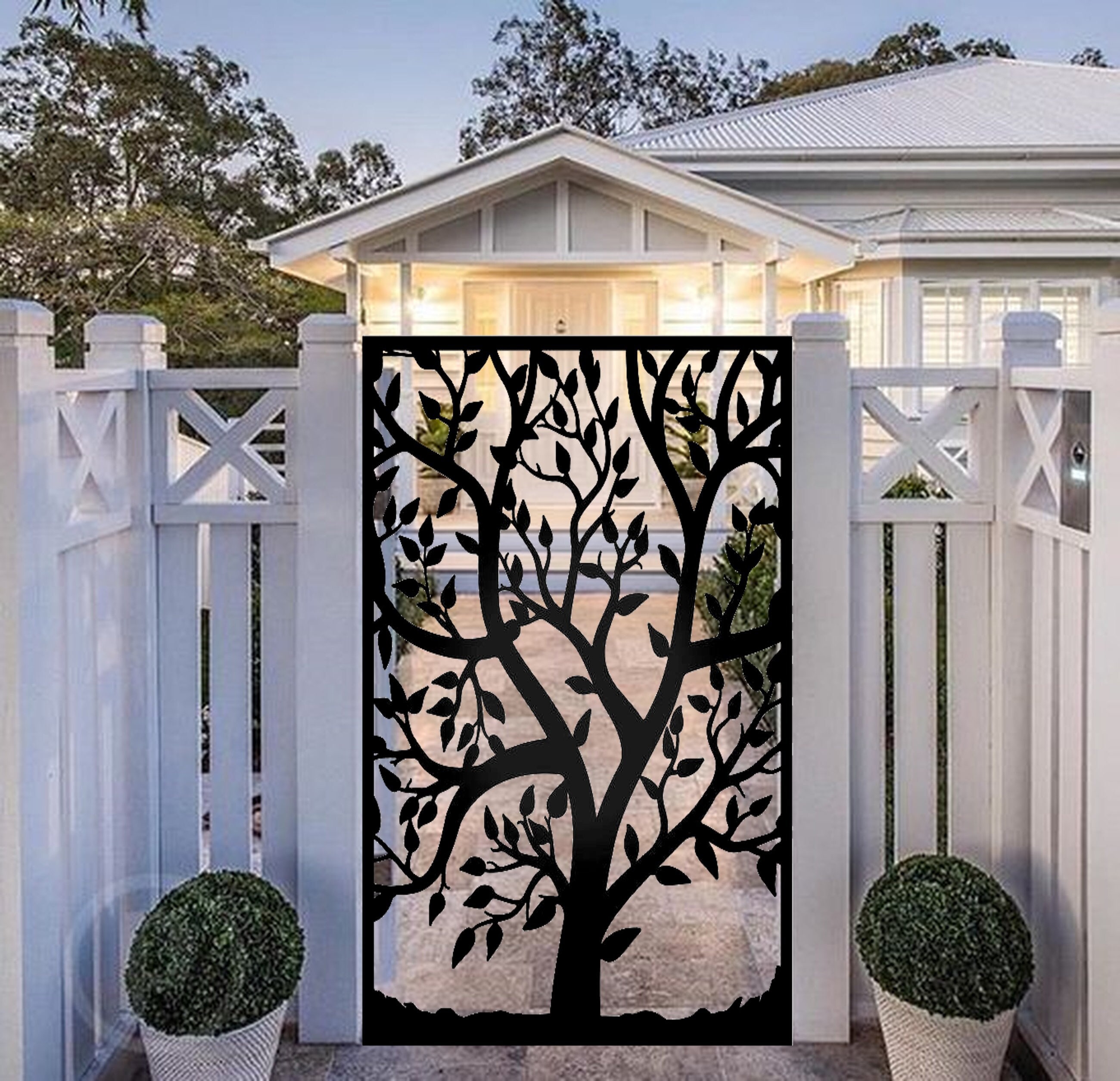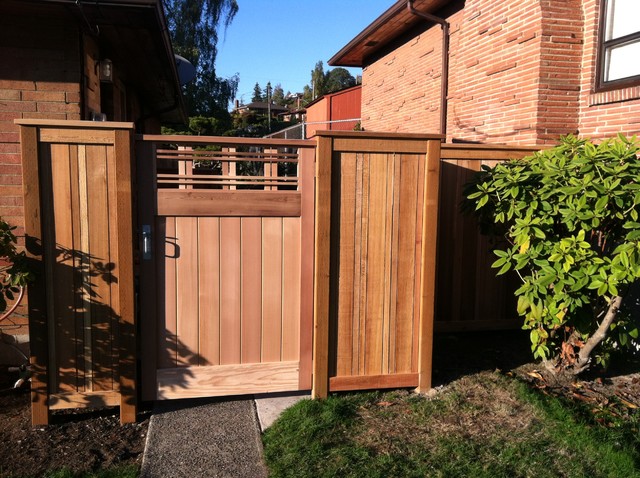Understanding Decorative Fence Gates
When it comes to enhancing the aesthetic appeal and functionality of your property, decorative fence gates are an unassuming but powerful asset. From classic wooden designs to modern wrought iron options, these gates can transform a simple fence into a stunning entryway. In my journey to improve my home’s curb appeal, I discovered the magic of these gates, and I’m excited to share what I’ve learned.
Why Choose Decorative Fence Gates?
Decorative fence gates serve more than just a practical purpose; they also add personality to your property. Here are a few compelling reasons to consider:
- Enhanced Curb Appeal: A beautifully designed gate can significantly elevate the overall look of your garden or yard.
- Increased Property Value: Homes with attractive outdoor features often attract higher offers from potential buyers.
- Security: A sturdy decorative gate can provide an added layer of security for your home without sacrificing beauty.
- Customization: Decorative gates are available in various styles and materials, allowing you to express your personality and match your home’s architecture.
Types of Decorative Fence Gates
With a myriad of options available, selecting the right decorative fence gate can feel overwhelming. Below is a breakdown of popular gate types to help you make an informed choice:
1. Wooden Fence Gates
Wooden gates add warmth and charm, making them a favorite for classical and rustic designs.
Pros:
- Natural aesthetics
- Customizable in size and style
- Relatively affordable
Cons:
- Requires regular maintenance
- Vulnerable to pests and weather damage
2. Wrought Iron Gates
For a touch of elegance and durability, wrought iron gates are an excellent option.
Pros:
- Long-lasting and sturdy
- Low maintenance
- Adds a vintage charm
Cons:
- Higher initial cost
- Can rust if not properly coated
3. Vinyl Gates
Vinyl gates are a modern solution that mimics wood while offering superior durability.
Pros:
- No painting or staining required
- Resistant to pests and rot
- Available in various colors
Cons:
- Can be less customizable
- May not have the same aesthetic appeal as natural materials

4. Aluminum Gates
Lightweight and resistant to corrosion, aluminum gates offer a modern alternative.
Pros:
- Rust-resistant
- Lightweight and easy to install
- Variety of designs available
Cons:
- Less durable than wrought iron
- Can bend under extreme pressure
Comparative Analysis of Gate Materials
| Material | Durability | Maintenance | Aesthetic Appeal | Cost |
|---|---|---|---|---|
| Wood | Moderate | High | High | Low |
| Wrought Iron | Very High | Low | Very High | High |
| Vinyl | High | Very Low | Moderate | Moderate |
| Aluminum | Moderate | Low | Moderate | Moderate |

Choosing the Right Decorative Fence Gate for Your Needs
Now that you’ve explored the main types of decorative fence gates, it’s time to narrow down your choices based on specific needs:
1. Assess Your Property Style
Consider your home’s architecture and landscape. A contemporary home may benefit from sleek aluminum gates, while a traditional cottage might shine with a wooden gate.
2. Analyze Your Budget
Set a budget before you start shopping. Remember that some materials may have a higher upfront cost but require less maintenance in the long run.
3. Think About Functionality
Will the gate be used daily? If so, you’ll want to consider a material that can withstand frequent use without showing wear.

4. Plan for Security
If security is a priority, sturdy options like wrought iron or solid wood may be the best choice.
Installation Guide for Decorative Fence Gates
Installing a decorative fence gate can be a rewarding DIY project, but it requires careful planning and execution. Here’s a step-by-step guide to get you started:
Tools and Materials Needed
- Gate kit (if applicable)
- Concrete mix (for post installation)
- Post hole digger
- Level
- Drill and screws
- Tape measure
- Hinges
- Latch mechanism

Step-by-Step Installation Process
1. Measure and Plan
Determine the location of your gate and measure the space. Ensure you have enough room for the gate to swing open.
2. Dig Post Holes
Using a post hole digger, excavate holes for the gate posts. Ensure they are deep enough to provide stability.

3. Set the Posts
Place the gate posts in the holes and fill with concrete. Use a level to ensure they are straight.
4. Attach the Gate
Once the concrete has set, attach the hinges to the gate and then to the posts. Make sure the gate swings freely.

5. Install the Latch
Finish by adding the latch mechanism for secure closure.
6. Finishing Touches
Paint or stain the gate as needed to protect against the elements and enhance aesthetics.

Maintaining Your Decorative Fence Gate
Regular maintenance is crucial for the longevity of your decorative fence gate. Here are some tips based on material type:
Wooden Gates
Inspect for signs of rot, pests, or weather damage. Regular sealing and staining every few years can protect the wood.
Wrought Iron Gates
Check for rust spots and treat them with a rust-inhibiting paint. Ensure moving parts are lubricated to prevent squeaking.
Vinyl Gates
Clean regularly with soap and water to avoid dirt build-up. Check for any cracks or fading and replace if necessary.
Aluminum Gates
Aluminum is low-maintenance. However, it’s advisable to periodically check hinges and latches for functionality.
Frequently Asked Questions (FAQs)
What is the average cost of a decorative fence gate?
The cost of decorative fence gates varies widely based on material and design, typically ranging from $100 to $2,000.
Can I install a decorative fence gate myself?
Yes, with the right tools and instructions, you can install a decorative fence gate as a DIY project.
Do decorative fence gates require a permit?
It depends on local regulations. It’s wise to check with your local municipality before installation.
How do I choose the right size for my gate?
Measure the opening where the gate will be installed. Consider the swing radius and ensure the gate won’t obstruct pathways.
Are decorative fence gates weather-resistant?
Many materials, like vinyl and aluminum, are weather-resistant. Wooden gates require protective coatings to withstand the elements.